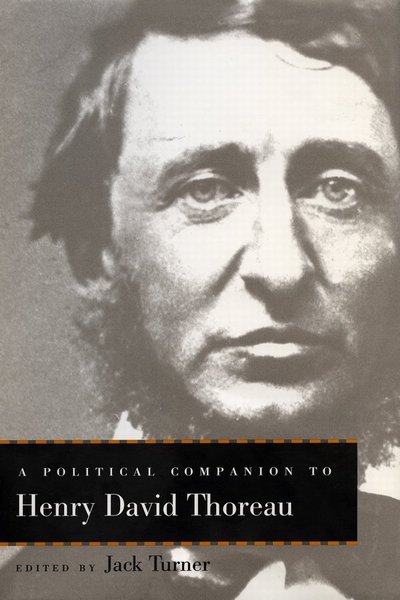October 22, 2009
New book edited by UW political science professor explores Thoreau as political thinker
Henry David Thoreau (1817-1862), the naturalist and transcendental philosopher, inspired audiences but also irritated them. He does the same today, says Jack Turner, a UW assistant professor of political science.
Turner is the editor of A Political Companion to Henry David Thoreau, 16 essays written by him and 15 other scholars recently published by the University of Kentucky Press ($40, hardback, 483 pages). It’s the first comprehensive collection focused exclusively on Thoreau as a political thinker.
“Thoreau is often seen as a reclusive naturalist or anti-social hermit,” Turner says, “But the book shows that he in fact thought hard about the fundamental question of politics, ‘How shall we live together?’ It also shows how Thoreau’s answers to that question are relevant today.”
In his introduction to the volume, Turner points out how Thoreau could be politically passionate. He attacked those who tolerated slavery as “men of straw” and “lump(s) of dirt.” But Thoreau could also be cavalier and dismissive of the political process: “As for adopting the ways which the State has provided for remedying the evil, I know not of such ways. They take too much time.”
The book’s opening essays examine relationships between Thoreau’s work and democratic theory. They show how Thoreau personified democratic ideals while questioning the authority of representative governments.
The volume’s subsequent essays place Thoreau in the context of American history and politics. In his public opposition to slavery, Thoreau became a prophet, writes George Shulman, a scholar at New York University who contributed one of the book’s essays. Thoreau “engages a political life he maligns but also dreams of transforming.”
Thoreau admired the abolitionist John Brown for seizing control of a federal armory in Harpers Ferry, Va., in October 1859 — an initial move in what Brown hoped would be a slave uprising. Thoreau publicly supported Brown, pointing to the importance of not merely belief but action.
At the end of the book are essays situating Thoreau in classical and contemporary political theory, comparing him to thinkers such as Jean-Jacques Rousseau, Theodor Adorno and Mahatma Gandhi.
“In many ways, Thoreau embodies American political thought at its best,” Turner says, “for his central preoccupation is how to be both self-reliant and morally conscientious.”




